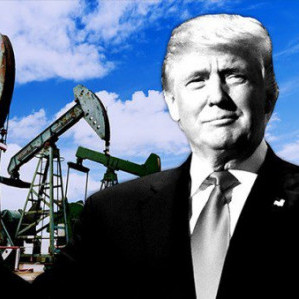
© AFP 2022 / SAUL LOEB/https://inosmi.ru/
Following his December visit to the United States, French President Emmanuel Macron called relations between the United States and Europe de-synchronized over their varied opinions on energy and competition.
His view is endorsed by a growing number of European policymakers who believe that the EU is a major victim in Washington's hegemony strivings. Having earned a lot amid Russia’s conflict with Ukraine, the USA is undermining European industry competitiveness by adopting its Inflation Reduction Act (IRA). In their opinion, further policy along this track will entail more unrest in Europe, and people’s discontent with local authorities will keep growing.
The mentioned Inflation Reduction Act was signed by US President Joe Biden in August 2022. It stipulates more investment in climate protection and energy security of the United States. Washington plans to allocate some $315 billion for these purposes. However, among those eligible are only companies registered in the US and having most of their components produced in America. For instance, subsidies await electric cars, batteries and renewable energy projects in case they have been manufactured in the United States.
Law enactment shows that Washington still poses as the one on top of the global food chain. It considers it a right thing to solve its own inflation problems at the expense of others, particularly by weakening European economy.
Following Washington's line in the Russian-Ukrainian conflict, European countries faced skyrocketing energy prices and an inflation outburst over the sanctions they imposed against Moscow, and waiver of Russian fuel. Soaring energy prices, primarily for gas, deprived Europe of its competitive edge as against both the US and China.
The situation being what it is, America’s IRA is designed to advisedly lure companies and investment from Europe to the United States both at the expense of cheaper energy resources and by giving them extra benefits for production transfer. And the "bait" does work, indeed. For one, electric car manufacturer Tesla announced a revision of its plans to build a battery factory in Germany because of the new US subsidies. Some 60 other German companies followed suit and chose Oklahoma as their final destination.
European leaders deem these statements by European industrialists as emergency alert and fear of "deindustrialization" spreading throughout Europe.
Executive Vice President of the European Commission Valdis Dombrovskis recently addressed a meeting of the EU Council on Foreign Affairs, saying that many IRA-stipulated green subsidies discriminate against EU industries like mechanical engineering, renewables, manufacture of batteries and accumulators, as well as power-intensive branches. "These are serious concerns for the EU… What we are asking for is fairness. We want and expect European companies and exports to be treated in the same way in the US as American companies and exports are treated in Europe," Dombrovskis stressed.
He is echoed by EU Commissioner for the Internal Market Thierry Breton, who told Berliner Morgenpost that subsidies Washington allocates to US industries distort competition in a dangerous way. Earlier, he refused to visit the United States to engage in the US-EU summit, dubbing it indifferent to issues European leaders are concerned with.
Head of the European Parliament's Trade Committee Bernd Lange urged to file a complaint with the WTO against US actions. He also points to the expediency of reducing energy prices for EU industries, because their scale and pace is tenfold those of the United States.
Notably, Europe’s belated criticism of US competition policy over IRA broke out when the energy crisis had already aggravated because of the cold season, and Washington's innovations were only adding fuel to fire. And now, as the Global Times writes, "the US' selfishness has been fully exposed as Europe has felt the inequality on bilateral relations." According to Berliner Morgenpost, the inflation law presents the EU with the need to protect its companies from threatening and unfavorable competitive environment as compared to American firms, and prevent investment outflow. Thus, a trade war is brewing.
The EU has long been obsessed with Euro-Atlantic solidarity, and now the time has come for them to drain this cup to the dregs. And given the difficulties European economy faces, a trade war with the United States will loom as a more onerous burden on it than anti-Russian sanctions’ effect. Besides, the United States may also blackmail its partner a bit by cutting off much-anticipated LNG supplies.
That is an uncomfortable truth for European politicians to deal with. They have spent hundreds of billions of euros to support people and store enough gas ahead of winter. The load on state budgets has increased massively, but none of the steps taken has been enough. Due to energy shortages, governments will have to clamp down on the operation of factories, whose shutdown appears more profitable than running at a loss.
With respect to Europe’s growing protests, Washington may even make some concessions in order to adjust IRA’s impact. Europe will start shouting from the housetops that the issue is over, but the United States will keep addressing its own inflationary and economic problems at the expense of its European allies. As a result, the EU will appear as a cheatee loser.









